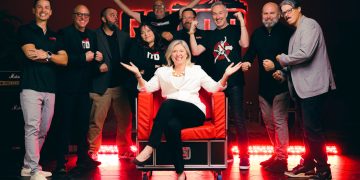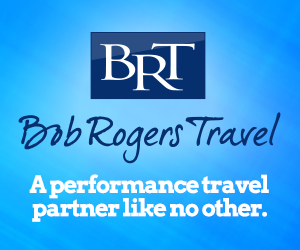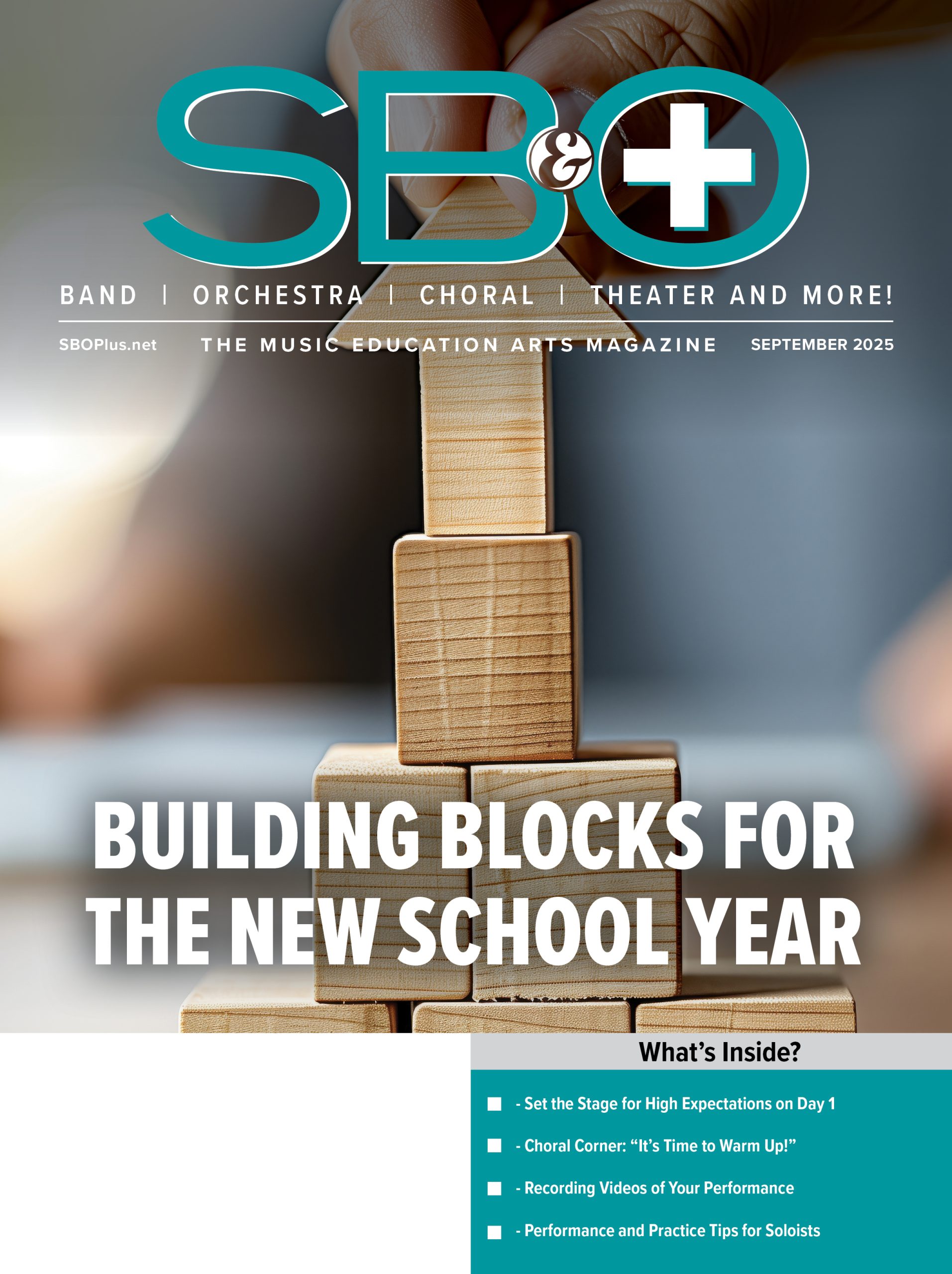When Gator Cases was founded in 2000 by Crystal Morris and her father, Jerry Freed, the company was literally born at their kitchen table. The name “Gator”—bold, tough, and proudly Floridian—reflected both the physical resilience of their products and the founders’ deep roots in Florida’s music community. Twenty-five years later, Gator is a cornerstone of the music products industry, offering over 1,000 case and accessory solutions and a growing commitment to music education.
The Origin Story
Crystal, now the CEO of Gator, recalls those early days fondly. “My dad had an entire career in the music industry. He owned IMC Music in Texas, and I grew up going to NAMM shows, even as a college student. So, when we saw an opportunity to start a case company, it felt natural.”
Their first show was the 2000 Summer NAMM in Nashville, where Gator debuted a modest lineup of six or eight plastic guitar cases. “We had someone in a giant gator costume trying to make a splash,” Crystal laughed. “The NAMM police kept telling us to stay in our booth.”
A Market Ready for Gator
The spark was real. The need was there. For musicians who couldn’t afford the heavy, expensive Anvil-style cases but needed something sturdier than wood, Gator’s molded plastic options filled a critical gap.
That spirit of listening to the needs of musicians has never left Gator. From the very beginning, the company sold directly to dealers—bypassing distributors—a bold move that enabled them to stay closely connected to the grassroots needs of retailers and educators. “We listened. We heard what our dealers were hearing from their customers. That helped guide our growth.”
Gators Grow Big
Growth, indeed. From plastic guitar cases, Gator expanded rapidly into keyboard and rack cases, then gig bags, accessories, and stands. Their Frameworks line added microphone stands, keyboard stands, speaker stands, and even studio furniture to the catalog. Their Rackworks division brought in metal racks and drawers for audio-video professionals. Gator Cableworks followed, and even furniture—home studio pieces that don’t just work well but look good doing it.
“The furniture was born out of COVID,” Crystal explained. “People set up studios in their homes. We wanted something that would make the gear look less ugly and more integrated into living spaces.”
Perhaps one of the most defining moments in Gator’s story was their acquisition of Levy’s Leathers. “They were ready to retire. It was a beautiful factory in Nova Scotia, with artisans who’d been making handmade straps for 20 to 30 years. I didn’t want to lose that legacy. So, we kept the factory, kept the brand, and kept the name.”
Meeting Music Educators’ Needs
This commitment to preserving legacy while pushing innovation forward runs deep at Gator. And that includes a major emphasis on education.
The school music market, in particular, has become a focus for Gator in recent years. Recognizing the needs of educators and students, they brought on team members with deep backgrounds in B&O to ensure their cases and accessories meet the specific challenges of the classroom. This includes everything from lightweight backpacks for student ease-of-use to high-end cases for college and professional-level players.
“We decided to really focus on band and orchestra. We had standard offerings, but we wanted to stand out. So, we brought in people who understood the educational journey—from the first rental instrument to advanced students.”
That investment has led to an expanded line of student- and educator-specific products. Gator now offers molded and soft cases for nearly every school band instrument, including clarinets, flutes, trumpets, trombones, violins, violas, and cellos—many of which are tailored for student ergonomics and weight distribution. Backpack-style gig bags with reflective strips for added safety, integrated sheet music pockets, and durable, weather-resistant exteriors are now standard features.
Gator’s catalog has grown to include bari sax and bass clarinet cases with molded support channels, soft gig bags with specialized padding and reinforcements for school-owned tubas and euphoniums, and ruggedized wheeled cases for percussion kits and music stands. These designs are not only practical for student mobility, but durable enough to withstand the wear and tear of school fleets year after year.
The company also offers specialized cases for recorders, ukuleles, and Orff instruments, recognizing the popularity of general music classrooms in elementary education. For teachers managing large classes, Gator’s bulk storage carts and wall-mounted instrument hangers help keep things organized, accessible, and safe. Their integrated approach makes outfitting a full music room simpler and more consistent.
Music Classroom Expansion
In the classroom, Gator has launched portable instrument racks, stackable classroom storage solutions, and new performance chairs and stands. The company even supports modern music education initiatives with their line of studio desks and desktop speaker stands, helping schools outfit digital production and recording labs.
Gator has also developed modular AV carts, collapsible mic stand kits, and cable management systems that simplify tech-heavy setups for music educators who are increasingly balancing traditional rehearsal spaces with DAW labs and stage tech classes. The goal is clear: provide affordable, reliable solutions that match the evolving needs of school music programs.
Beyond that, Gator is increasingly engaged with music education advocacy groups and nonprofit initiatives, working with teachers who are active in organizations like TI:ME, APME, and MusicWill, to stay informed on real-world classroom needs. Their gear has become a staple in modern band programs across the U.S., enabling students to safely carry, store, and perform with gear ranging from digital keyboards to full marching percussion kits.
Gator is also listening to teachers in underserved communities. Feedback loops from Title I districts, rural schools, and urban music educators have driven the development of more resilient, modular solutions. By ensuring affordability doesn’t compromise quality, Gator continues to show its deep understanding of the pressures placed on music teachers today.
The company has also made strides in music education beyond the gear. Gator provides professional development support to dealers serving schools, including how-to videos, webinars, and marketing support that helps them better communicate product value to educators. In addition, Crystal and her team frequently attend educational conferences not just to sell, but to listen.
“Educators are the heart of everything we do in this segment,” said Crystal. “They are shaping the next generation of musicians, and our job is to make their job easier—whether that’s with a better trumpet case or a smarter classroom stand system.”
That same commitment led Gator to step up in a big way during COVID. They designed and manufactured singer masks that allowed vocalists and wind players to return to classrooms and rehearsals safely. “We got letters from school music teachers thanking us for helping them get their programs back up and running,” Crystal said. “It was so rewarding to be part of the solution.”
Commitment to Community
Gator’s support for school music doesn’t stop at products. They remain fiercely loyal to school music dealers—especially the mom-and-pop shops that are the lifeblood of many communities.
“I think we have to have local music stores for the future of our industry. We’ve always been a dealer-focused business, and we work hard to support them with merchandising, ppoint of purchase materials, and great margins.”
That focus has paid off in loyalty. Gator still works with some of the same international distributors who took a chance on them in year one. “They believed in us, and we’ve grown together. Those relationships matter.”
Inspiration and Innovation
The emotional core of the company, though, remains the memory of Crystal’s father, Jerry. “He passed away eleven years ago,” Crystal shared. “But he’s still such a big part of this company. I talk to him all the time in my head. We built this together. And when he passed, I had a moment of: ‘It’s game time.’ I had 40 or 50 employees and their families relying on me.”
Today, Gator employs over 150 people across multiple facilities, including a manufacturing hub in Indiana and the Levy’s factory in Canada. Like everything else they make, their Asian-crafted imported products from Vietnam and China are all designed in Tampa, Florida. They’ve built an internal product design and innovation team, with multiple industrial designers on staff. “We’re not buying off-the-shelf stuff. We’re designing every piece. That’s what makes it special.”
Gator also continues to invest in environmental sustainability. Their teams are evaluating ways to reduce plastic usage in packaging and looking for new eco-friendly materials in product design. As music educators themselves look for more sustainable vendors, Gator wants to remain ahead of the curve in offering conscientious options without sacrificing durability.
As Crystal reflects on 25 years, she’s proud not just of the products but of the culture. “This isn’t just mine—it’s ours. It’s a family. And that’s how we’ve gotten here.”
From a kitchen table in Florida to classrooms and concert halls around the world, Gator Cases has stayed true to its roots while building a future that protects music, supports education, and honors family. SBO+ salutes Gator Cases as they celebrate this awesome 25th anniversary milestone.


























